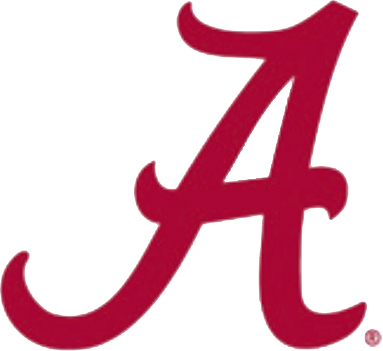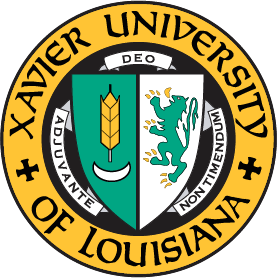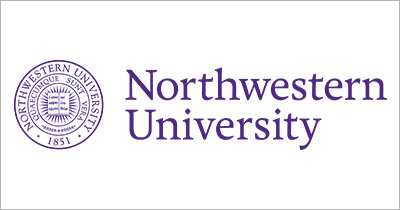Company Directory - University of North Carolina System
Company Details - University of North Carolina System

University of North Carolina System
WebsiteChapel Hill, United States
16 Locations
The University of North Carolina System is a public university system in North Carolina that provides higher education across multiple campuses. It is widely recognized for its competitive college basketball program as well as academic excellence in a variety of disciplines.
CCI Score
CCI Score: University of North Carolina System
-24.49
0.10%
Latest Event
UNC Lobbying Spending in 2023
The University of North Carolina System spent $640,000 on lobbying activities during 2023, as detailed by OpenSecrets. While universities often engage in lobbying for public funding or policy support, the nature of these expenditures raises questions about the influence of such spending on democratic accountability and transparency.
Take Action
So what can you do? It's time to make tough choices. Where will you cast your vote?
- Shop Alternatives
SEE ALL - Use Your Voice
OTHER TOOLS - Investigate
- Share the Score
SUPPORT CCI
ACCOMPLICE
University of North Carolina System is currently rated as an Accomplice.
Latest Events
 DEC312023
DEC312023The University of North Carolina System spent $640,000 on lobbying activities during 2023, as detailed by OpenSecrets. While universities often engage in lobbying for public funding or policy support, the nature of these expenditures raises questions about the influence of such spending on democratic accountability and transparency.
-20
Political Contributions and Lobbying Efforts
March 30
The documented $640,000 spent on lobbying by the University of North Carolina System is an example of political engagement that can be used to influence policy. While lobbying is a common tool for public institutions seeking support or funding, the use of such financial influence can potentially reinforce entrenched power structures without clear evidence of progressive or anti-authoritarian intent. In the context of our assessment, this spending is rated slightly negative for its potential role in shaping political processes without transparent accountability.
 DEC082023
DEC082023Following the resignation of UNC-Chapel Hill Chancellor Kevin Guskiewicz, Governor Roy Cooper has called for comprehensive reforms to the UNC System's governance. The proposed measures include increased transparency, reduction of partisan influence, and more balanced board appointments, all aimed at stabilizing leadership and preventing undue political meddling.
+80
Public and Political Behavior
March 30
The reforms called for by Governor Cooper directly address the influence of partisan politics on UNC System governance. By pushing for a more transparent and diversified board appointment process, the initiative aims to reduce authoritarian interference and promote democratic oversight, which supports anti-fascist values.
 APR032023
APR032023Emails obtained via public records reveal that senior UNC officials, including the senior VP of government affairs, engaged in behind‐the‐scenes lobbying efforts to slow or block the REACH Act, a bill that would mandate a college course on American government and foundational documents. The emails indicate coordinated actions among UNC officials with significant salaries, aimed at influencing legislative outcomes.
-80
Political Contributions and Lobbying Efforts
March 30
UNC’s government affairs team actively lobbied against the REACH Act, which aimed to enhance civic education through a mandatory course on American government. From an anti-fascist perspective, efforts to block comprehensive civic literacy that supports democratic engagement are deeply concerning, particularly given the high salaries and influential positions of the officials involved.
Emails show UNC lobbying against bill to teach founding documents
-70
Executive Political Engagement
March 30
The involvement of high-ranking executives, including the vice president of government affairs and the UNC System president, in actively directing lobbying efforts raises concerns about undue executive influence over educational policy. This politicized maneuver undermines civic education efforts that promote informed, democratic citizenship.
Emails show UNC lobbying against bill to teach founding documents
 APR012023
APR012023In 2023, GOP-sponsored legislation and politically driven governance led to sweeping shifts in the UNC System. Controversial bills expanded the power of politically appointed boards, disrupted traditional academic autonomy, and triggered leadership upheavals, resulting in widespread criticism by faculty and other stakeholders.
-60
Public and Political Behavior
March 30
The aggressive imposition of GOP-backed policies and the meddling of politically appointed boards in academic processes represent a clear attempt to steer institutional narratives and suppress progressive values, thereby undermining democratic and inclusive practices in higher education.
-30
Economic and Structural Influence
March 30
The legislative measures and politically driven structural changes imposed on the UNC System compromise the institution's autonomy. This economic and structural interference represents an authoritarian encroachment that disrupts the established balance between governance and academic freedom.
 FEB152023
FEB152023In February 2023, following a contentious tenure decision involving founder Nikole Hannah-Jones, the Ida B. Wells Society for Investigative Journalism relocated from UNC-Chapel Hill to Morehouse College. The dispute and delayed fund transfers highlighted deep-seated issues of political interference in academic personnel decisions.
-55
Public and Political Behavior
March 30
The disputed tenure vote and subsequent relocation of a prominent investigative journalism society reflect politically charged interference in academic decision-making processes. This incident undermines academic freedom and the support for diverse, independent voices, aligning with authoritarian practices.
 JAN112023
JAN112023Emails obtained through public records reveal that senior executives at the University of North Carolina System actively lobbied against the REACH Act, a proposed bill that would mandate a course on American government and the nation’s founding documents. The emails detail efforts by UNC officials to impede the passage of the legislation through direct engagement with state legislators, reflecting internal disagreements over the role of civic education in the curriculum.
-70
Political Contributions and Lobbying Efforts
March 30
Emails show that UNC officials, including senior government affairs personnel, coordinated lobbying efforts to slow down the REACH Act. Such actions undermine attempts to promote civic education and informed democratic participation, aligning with authoritarian tendencies by keeping critical constitutional literacy at bay.
Emails show UNC lobbying against bill to teach founding documents
-65
Executive Political Engagement
March 30
The involvement of high-ranking executives, including the acting senior vice president for academic affairs and the senior vice president of government affairs, in lobbying activities demonstrates a direct interference in the political process. Their actions to 'handle' legislative opposition further indicate an executive-level engagement that prioritizes institutional interests over advancing civic educational reforms.
Emails show UNC lobbying against bill to teach founding documents
 JAN012023
JAN012023The University of North Carolina System was reported to have spent $640,000 on lobbying activities in 2023, as detailed by OpenSecrets. This public disclosure of lobbying efforts suggests active engagement in the political process, likely aimed at protecting and advancing public interests in higher education.
+10
Political Contributions and Lobbying Efforts
March 30
Lobbying activities by the UNC System, as disclosed through spending reports, indicate that the institution is engaging in political advocacy. Given that UNC is a public university system, its lobbying is likely oriented towards safeguarding public education and progressive interests, rather than advancing authoritarian agendas. The transparent reporting of $640,000 in lobbying underscores a commitment to accountability, even though the specific policy goals are not detailed in the report.
 JAN012023
JAN012023Early in 2023, the UNC System Board of Governors introduced a policy that prohibited discussion of political debates, beliefs, affiliations, and related topics during employment and enrollment processes. While proponents claimed the measure would ensure political neutrality, critics argued it was a conservative attack undermining diversity, equity, and inclusion and curtailing academic freedom.
-50
Public and Political Behavior
March 30
The introduction of a policy that restricts discussion of political beliefs in academic and employment settings is seen as a politically motivated attempt to suppress progressive dialogue and undermine DEI efforts. This aligns with broader concerns about academic freedom and the marginalization of diverse perspectives.
 APR252022
APR252022A report published in April 2022 details an investigation into the University of North Carolina System’s governance, highlighting how a gerrymandered state legislature and partisan board appointments have undermined academic freedom and fostered institutional racism, leaving faculty—especially those of color—in a hostile environment.
-70
Executive Political Engagement
March 30
The report documents significant partisan interference in UNC system governance, where the board of governors and campus trustees have been influenced by a gerrymandered state legislature. This undermines core academic freedoms and reflects a top-down authoritarian influence on institutional decision-making.
Governance, Academic Freedom, and Institutional Racism in the University of North Carolina System
-50
Labor Relations and Human Rights Practices
March 30
The investigation highlights a persistent pattern of institutional racism and marginalization of faculty of color. By suppressing meaningful faculty participation and tolerating inequitable practices, the UNC System is seen as failing to uphold essential labor and human rights standards within its academic environment.
Governance, Academic Freedom, and Institutional Racism in the University of North Carolina System
Alternatives

Washington, D.C., United States
43.44

Tuscaloosa, United States
-30.88
Tallahassee, United States
-59.71
Leipzig, Germany
63.88

Tehran, Iran
-47.00

Boston, United States
59.92

New Orleans, United States
47.81

Des Moines, United States
47.13

Evanston, United States
45.92

West Palm Beach, United States
45.00
Industries
- 611310
- Colleges, Universities, and Professional Schools
- 611699
- All Other Miscellaneous Schools and Instruction
- 611000
- Educational Services